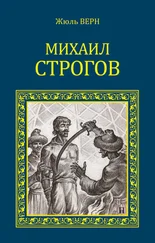| The natives whom business called beyond the Siberian frontier could not leave the province for a time at least. |
Прежде всего, те из российских подданных, кто захотел бы по своим делам выехать за сибирскую границу, уже не могли, по крайней мере в ближайшее время, покинуть губернию. |
| The tenor of the first article of the order was express; it admitted of no exception. |
Содержание первой статьи постановления звучало категорично. И не допускало никаких исключений. |
| All private interests must yield to the public weal. |
Любые частные интересы должны были отступить перед общими. |
| As to the second article of the proclamation, the order of expulsion which it contained admitted of no evasion either. |
Что до второй статьи, то содержавшийся в ней приказ тоже не допускал возражений. |
| It only concerned foreigners of Asiatic origin, but these could do nothing but pack up their merchandise and go back the way they came. |
Он был направлен не против иностранцев вообще, а только против азиатов; и тем не оставалось ничего другого, как упаковать свои товары и отправиться обратно той же дорогой, которую они только что проделали. |
| As to the mountebanks, of which there were a considerable number, they had nearly a thousand versts to go before they could reach the nearest frontier. |
Что же касается бродячих акробатов, которым до ближайшей границы нужно было пройти путь почти в тысячу верст, то для них это означало неотвратимое и скорое разорение. |
| For them it was simply misery. At first there rose against this unusual measure a murmur of protestation, a cry of despair, but this was quickly suppressed by the presence of the Cossacks and agents of police. |
Вот почему эта необычная мера поначалу вызвала было ропот протеста и вопль отчаяния, но присутствие казаков и полицейских быстро охладило пыл недовольных. |
| Immediately, what might be called the exodus from the immense plain began. |
И почти сразу же с этой обширной поляны началось переселение народов. |
| The awnings in front of the stalls were folded up; the theaters were taken to pieces; the fires were put out; the acrobats' ropes were lowered; the old broken-winded horses of the traveling vans came back from their sheds. Agents and soldiers with whip or stick stimulated the tardy ones, and made nothing of pulling down the tents even before the poor Bohemians had left them. |
Снимались натянутые перед лавками полотна; по частям исчезали ярмарочные театры; смолкли песни, прекратились пляски и балаганные представления; погасли огни; смотали канаты эквилибристы; возвратились из конюшен в оглобли старые, запыленные лошади, привыкшие возить жилье; полицейские и солдаты с хлыстом или палкой в руке поторапливали замешкавшихся и без стеснения валили палатки, не дожидаясь, пока бедняги-цыгане выберутся наружу. |
| Under these energetic measures the square of Nijni-Novgorod would, it was evident, be entirely evacuated before the evening, and to the tumult of the great fair would succeed the silence of the desert. |
Было очевидно, что при таком нажиме площадь Нижнего Новгорода еще до вечера будет полностью очищена и сутолока огромного рынка сменится тишиной пустыни. |
| It must again be repeated-for it was a necessary aggravation of these severe measures-that to all those nomads chiefly concerned in the order of expulsion even the steppes of Siberia were forbidden, and they would be obliged to hasten to the south of the Caspian Sea, either to Persia, Turkey, or the plains of Turkestan. |
Стоит ли повторять - таково уж было неминуемое последствие принятых мер, - что для всех этих кочевников, кого указ о выселении задевал непосредственно, под запретом оказывались и степи Сибири, так что им оставалось бежать до южного побережья Каспия - в Персию, в Турцию либо в долины Туркестана. |
| The post of the Ural, and the mountains which form, as it were, a prolongation of the river along the Russian frontier, they were not allowed to pass. |
Посты по реке Урал и в горах, образующих как бы продолжение линии этой реки вдоль русской границы, не позволили бы им свернуть раньше. |
| They were therefore under the necessity of traveling six hundred miles before they could tread a free soil. |
А значит, прежде чем ступить на свободную землю, им предстояло проделать тысячу верст пути. |
| Just as the reading of the proclamation by the head of the police came to an end, an idea darted instinctively into the mind of Michael Strogoff. |
В тот момент, когда полицмейстер закончил читать постановление, Михаила Строгова поразило неожиданно пришедшее на ум воспоминание. |
| "What a singular coincidence," thought he, "between this proclamation expelling all foreigners of Asiatic origin, and the words exchanged last evening between those two gipsies of the Zingari race. 'The Father himself sends us where we wish to go,' that old man said. |
"Как странно! - подумалось ему. - Какое странное совпадение между этим постановлением, изгоняющим иностранцев, выходцев из Азии, и словами, которыми обменялись прошлой ночью те двое бродяг, цыган и цыганка. "Ведь это сам батюшка отправляет нас туда, куда мы и так собирались!" - сказал тот старик. |
| But 'the Father' is the emperor! |
Но ведь батюшка - это же царь! |
| He is never called anything else among the people. |
В народе его иначе и не называют! |
| How could those gipsies have foreseen the measure taken against them? how could they have known it beforehand, and where do they wish to go? |
Как же эти цыгане могли предвидеть принятые против них меры, как они узнали про них заранее и куда они и так собирались? |
| Those are suspicious people, and it seems to me that to them the government proclamation must be more useful than injurious." |
Вот уж и впрямь подозрительные люди -губернаторское постановление им, как видно, скорее на пользу, чем во вред!" |
| But these reflections were completely dispelled by another which drove every other thought out of Michael's mind. |
Однако это размышление, бесспорно верное, тут же сменилось другим, перед которым в мозгу Михаила Строгова меркла любая иная мысль. |
| He forgot the Zingaris, their suspicious words, the strange coincidence which resulted from the proclamation. The remembrance of the young Livonian girl suddenly rushed into his mind. |
Он тотчас забыл и про цыган, и про их подозрительные речи, и про странное совпадение с вышедшим постановлением... Его сознанию предстало вдруг воспоминание о юной ливонке из Риги. |
| "Poor child!" he thought to himself. |
"Бедное дитя! - невольно вырвалось у него. |
| "She cannot now cross the frontier." |
- Она ведь не сможет теперь перебраться через границу!" |
| In truth the young girl was from Riga; she was Livonian, consequently Russian, and now could not leave Russian territory! |
И действительно, девушка была из Риги, она была ливонкой, то есть россиянкой, а значит, ей уже нельзя покинуть территорию России! |
| The permit which had been given her before the new measures had been promulgated was no longer available. |
Разрешение, выданное до принятия последних мер, теперь явно утрачивало силу. |
| All the routes to Siberia had just been pitilessly closed to her, and, whatever the motive taking her to Irkutsk, she was now forbidden to go there. |
Все сибирские дороги безжалостно закрылись перед ней, и, какова бы ни была причина ее поездки в Иркутск, путь ей туда отныне был заказан. |

![Агата Кристи - На краю [английский и русский параллельные тексты]](/books/32247/agata-kristi-na-krayu-anglijskij-i-russkij-paralle-thumb.webp)

